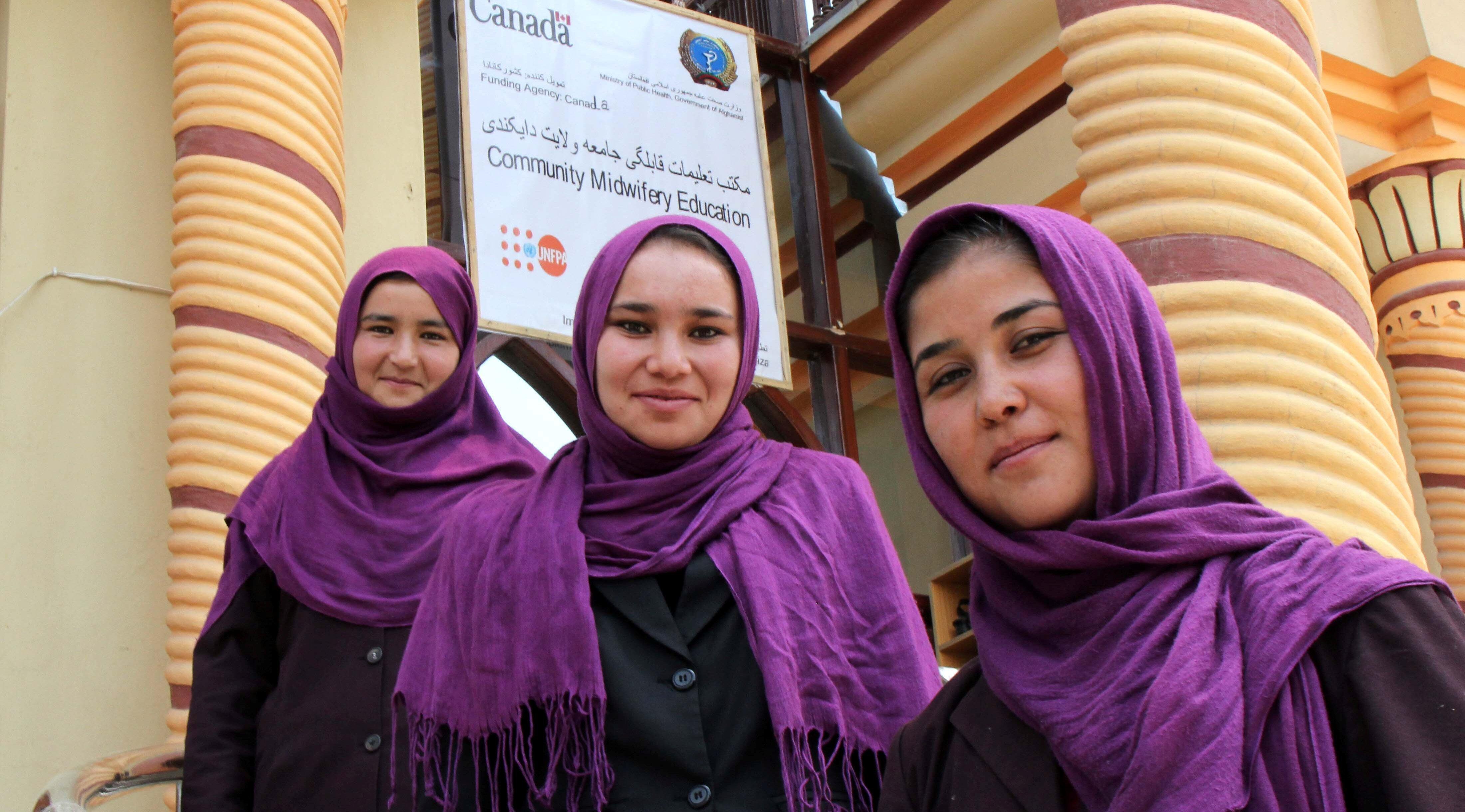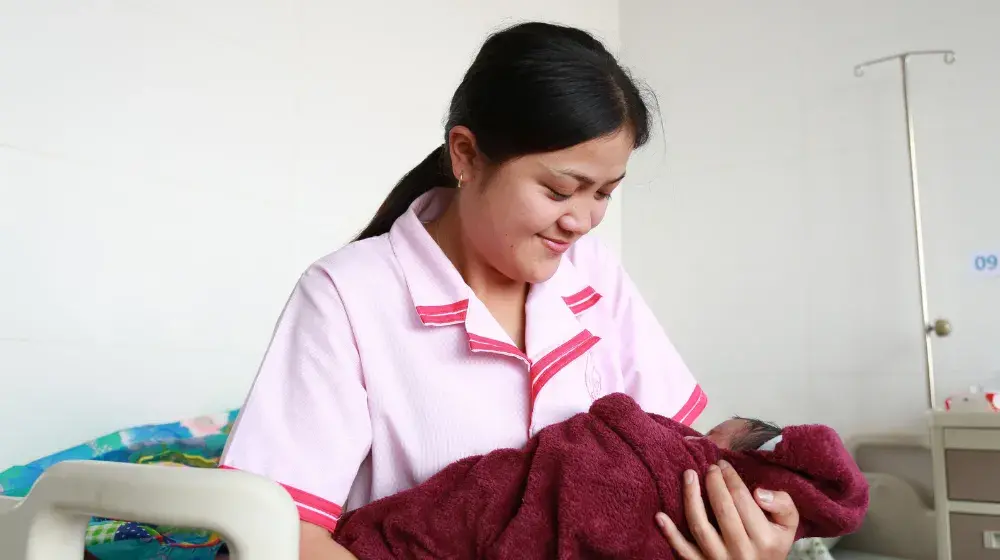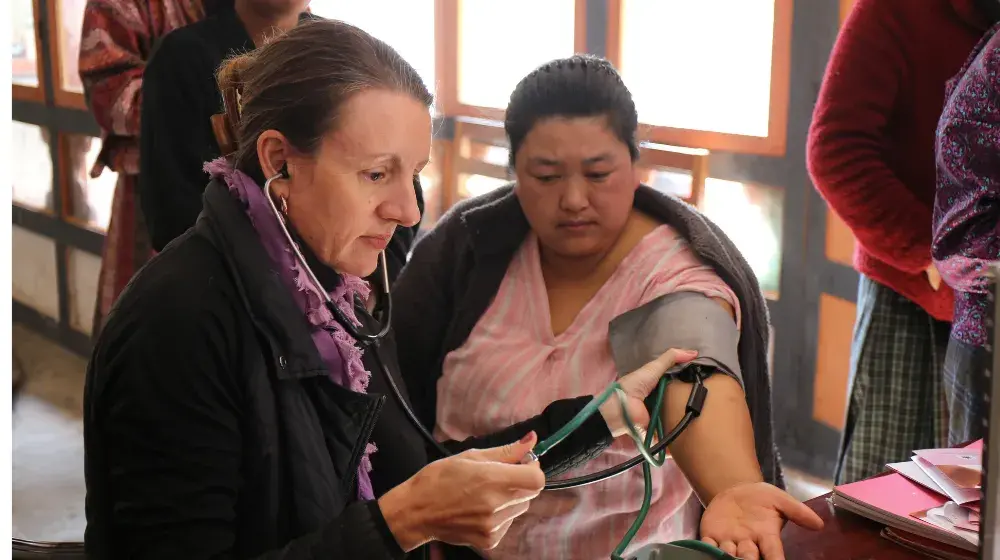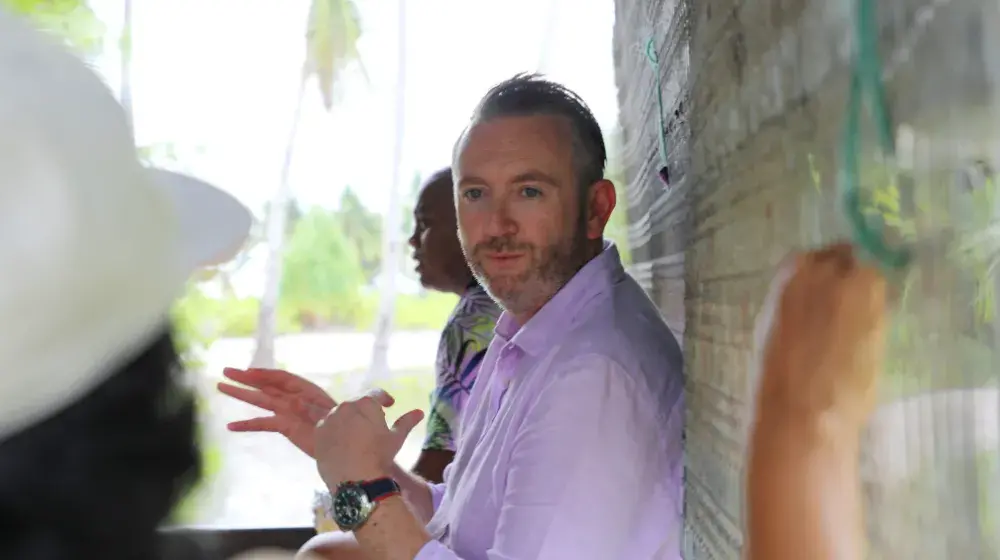KABUL—Purple is the colour midwifery students proudly wear in a small but revolutionary school in this busy capital. Apart from the purple scarf, they all have something in common: their place of birth. They come from one of the most remote and hard-to-reach areas of Afghanistan, Daikundi, a mountainous region full of green isolated valleys.
They have been selected by their neighbours, communities and elder leaders to bring lifesaving health care to women and children in Daikundi. In a country where a woman dies every two hours due to pregnancy-related complications, midwives play a key role to promote safe motherhood and deliver healthy babies.
“The wife of my uncle died during childbirth”, says Aqela, one of the students. “She lost a lot of blood and the placenta was retained. There was no midwife and she died. Her two children survived but they died months later because the adopting families didn’t have enough resources to take care of them.”
Aqela’s story is common in Afghanistan, where around 40 per cent of the population lacks health services within 10 kilometres or a three-hour walk and women are left alone to deliver. “I still remember a woman in my community who died because she couldn’t get to the hospital on time. Her placenta was retained inside after the child died during the delivery. Her family tried to take her to the nearest hospital and they carried her on the back of a donkey, but she died on her way there,” explains Masooma, another midwifery student.
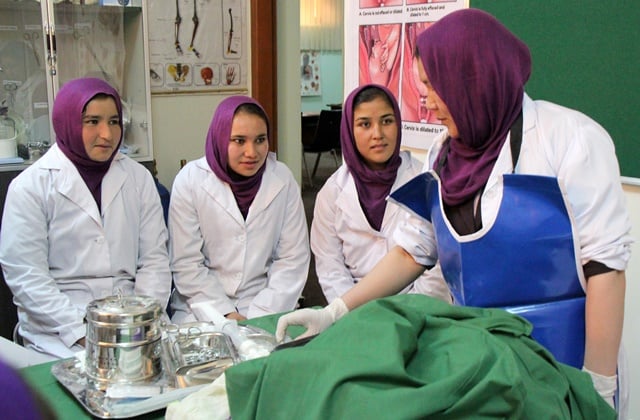
“My grandmother left this world delivering my father,” recalls Fatima. “I think this is the reason my family encouraged me to help my community joining this programme, so no one has to live without a mother or a father.”
Fatima, Masooma and Aqela joined the Community Midwifery Programme eight months ago. They went through a tough selection process that involved their families, communities, and a written examination. The ones with the best marks enrolled in the programme, an initiative promoted by UNFPA, the United Nations Population Fund, in collaboration with the Ministry of Public Health and the support of Canada and Italy.
Thirty-six candidates made it through the exam and joined the school in Kabul.
“We are really proud that we passed the exam. I was very nervous but now I am very happy that I will be able to help the poor people living in my community,” Aqela says. All the young midwifery students feel the same way. These realize how important their role will be when they move back to their communities after finishing the two-year education programme.
Women in Daikundi have few chances for higher education. Under Afghan culture, a woman is expected to remain at home and take care of the housework, children and her husband’s family. Women also face difficulties to leave their communities for they have to be escorted by a male family member when they travel. When women and girls move from remote areas like Daikundi to Kabul to study, they are challenging many of the social norms that rule women’s lives in Afghanistan.
“My mother didn’t want me to enrol in this programme; she said my place was at home,” says Massoma. “I was lucky my father and uncle convinced her, saying I should go because I was going to get education to help the community. My mother eventually agreed. Now she is happy, but we both miss each other.”
Once selected by their communities, the students and their families sign a commitment so the future midwife will return to the village after finalizing her studies.
“Different approaches were tried to bring basic health-care services to the most remote areas of Afghanistan. Mobile Health Teams and doctors were sent through different initiatives. None of these approaches worked out,” explains Dr. Ahmadullah Molakhail, manager of the Community Midwifery Education project at UNFPA Afghanistan. “We decided to actively involve the community in the process, guaranteeing their ownership from the very beginning. The project is a success. These midwives not only return to their communities with lifesaving skill sets, but they also return with a sense of empowerment and status.”
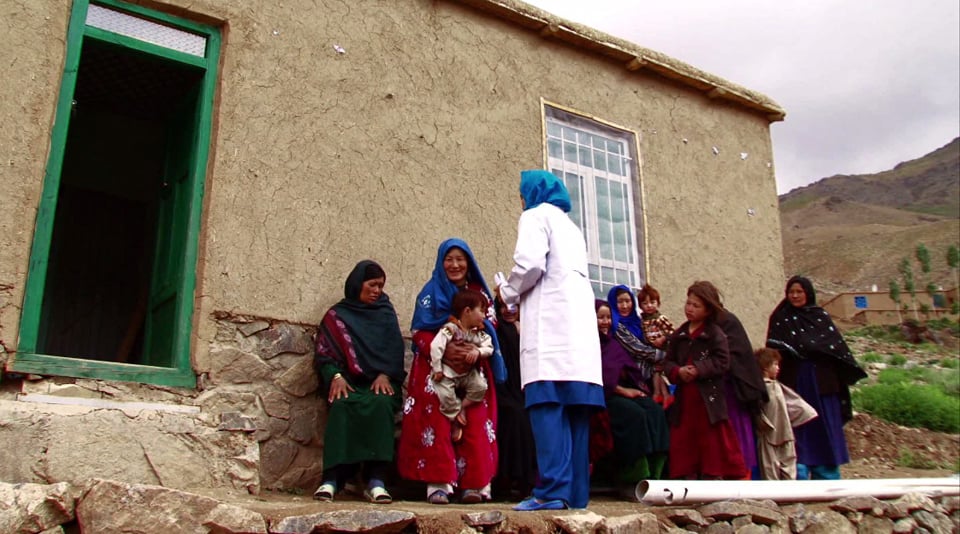
Once back in their communities, each midwife is in charge of a Family Health House, a lifesaving facility that provides essential maternal, newborn and child health care to 1,500 to 4,000 people.
The midwife works with the community and family decision makers to ensure that women receive preventive care services. Two community health worker volunteers, one male and one female, provide support. They meet the family members separately and sensitize them about the importance of different health issues, including family planning. They also play an important role in reaching out to other girls and young women in their communities who have limited access to reproductive health information.
Family Health Houses are also supported by mobile health teams, which offer technical and managerial support once or twice a month to the community midwife. They also vaccinate and provide primary health care.
Since 2009, the Ministry of Public Health with UNFPA support has established 82 family health houses and nine mobile health teams in the provinces of Faryab, Daikundi and Bamyan. By 2016 nine family health houses will be functional in the province of Herat.
“We are trying to learn as much as we can. We will not care about cold or hot weather, or how difficult our work will be. We will take care of our communities, it is our duty,” says Masooma. Their commitment is a testament to what they hope to become. Some communities have already a name for them. They call them angels.
-Maria Blanco Lora

